My affectionate readers, in this paper I have analyzed what are the means by which people connect to the internet today and the anthropological and philosophical meaning of connecting through mobile today, as well as the facets of the Human paradigm in the current cultural context.
(I express myself through words, images, and music, therefore in order to proceed with the reading it is necessary that you kindly make use of the concomitant listening of the following music, in this sequence: 1) “Étude Op.8 no.2 in F sharp minor” of Aleksandr Nikolaevič Skrjabin; 2) “Sarabande in D minor HWV 437” by Georg Friedrich Händel; 3) “The Golden Wire” from the homonymous album by Andy Summers; 4) “In the light” from the album “Physical Graffiti” by Led Zeppelin); 5) “Paris, Texas”, by Ry Cooder, part of the soundtrack of the homonymous film by Wim Wenders; 6) “Dresden IV” from the album “The Dresden Performance” by Klaus Schulze. For convenience, here is the playlist. Good sensory experience to all.)
SEO is a term and acronym that is not affected by the passing of the years, but always actual and feasible, as long as SEO is ostensory of a concept of visibility known as organic but which underlies and belongs to the sphere Human of online research. To enucleate the whys and the differences that have determined the elevation of a way of presenting data that is organic and vicariant of what is a sponsored content, is not a simple dish to deal with for the writer, nor to digest for the reader.
Perhaps only by scrutinizing the epistemology of SEO and the zeal of who is the author of content for the web in making what will be read, enjoyed, something more prose than prosaic, it is possible to understand the value of organically positioned content.
This introductory panegyric was a must for this that could be defined as a new mannerist art.
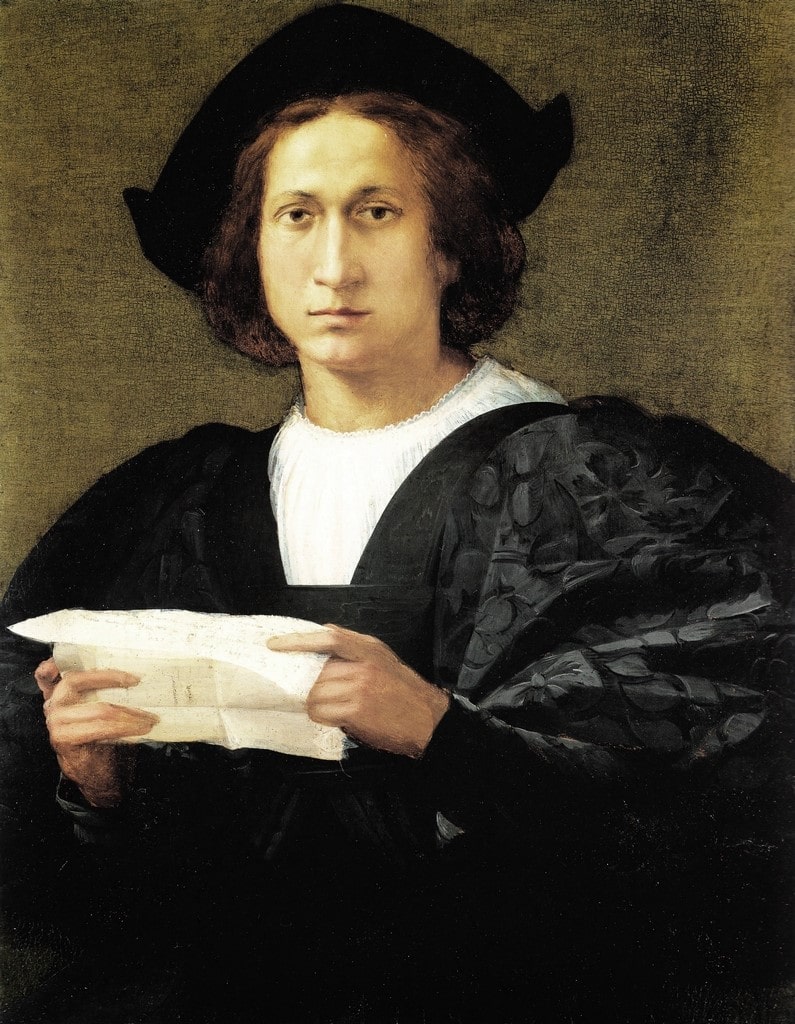
(Rosso Fiorentino – Portrait of a young man holding a letter, 1518, oil on panel – London, National Gallery)
The result called ” Organic ” probably has a more man-sized dimension and was long favored by users, even if, speaking of Google, the Mountainview giant’s attention is directed to quality both for organic results and for sponsored results.
The power of writing
Although I am personally a fan of paper and ink, and coming from academic studies related to the art of printing, I must acknowledge the fact that, even if the romantic part is lost a bit, even on the Internet interesting contents can be enjoyed .
But besides being interesting, a writing can and must be imprinted in the memory of the reader, it can have the ability to transmit a message, impose conditions, constitute an official, commercial, constitutional, military, political act. A writing, especially if on paper, is a meaning that remains, ” manent “, and will survive all of us.
In 1215, the Archbishop of Canterbury wrote the “Magna Carta Libertatum”, more common Magna Carta, to guarantee the rights of the church plus other aspects such as avoiding the illegal detention of the barons, and a limitation of the monarchical taxes paid by the feudal vassals, a card accepted by King John of England.
In 1648 a very complex treaty called “Peace of Westphalia” which involved many factions was signed with the mediation of Fabio Chigi (elected pope a few years later) and the Venetian ambassador Alvise Contarini; this treaty primarily sanctioned the end of the Thirty Years War, and the Eighty Years War.
In 1776 (July 4) the Five Commission (including Thomas Jefferson and Benjamin Franklin) wrote the “Declaration of Independence of the United States of America”, a charter in which thirteen British colonies declared their independence from the British Empire, and that officially sanctioned the birth of the United States of America.
In 1797 it was signed by the then general Napoleon Bonaparte and by the Austrian count Johann Ludwig Josef von Cobenzl, the “Treaty of Campoformio”, which reshuffled the cards in Europe sanctioning the defeat of the First anti-French coalition, the victorious seal of the first Italian campaign of Bonaparte, the end of the Republic of Venice, and the transfer of Veneto (together with Istria and Dalmatia) to Austria.
In 1847 it was written by Karl Marx and Friedrich Engels the “Manifesto of the Communist Party”, published in 1848 with the aim, besides spreading and becoming aware of the communist ideology, to silence the voices that traveled around Europe associating Communism with threat, ghost.
In 1919 the “Pact of Versailles” was signed by 44 states, a treaty that was to officially put an end to the First World War, and so it was, but because of the rigidity of the legitimate sanctions against Germany, opposed by the latter so much by to bring the National Socialist party to power, the Versailles Pact laid the foundations for the Second World War.
In 1987, the “INF Treaty” was signed by Ronald Reagan and Michail Gorbachev on the ban on intermediate nuclear forces, which established the principle of “symmetrical reduction” for medium-range strategic missiles on the basis of strict mutual control procedures.
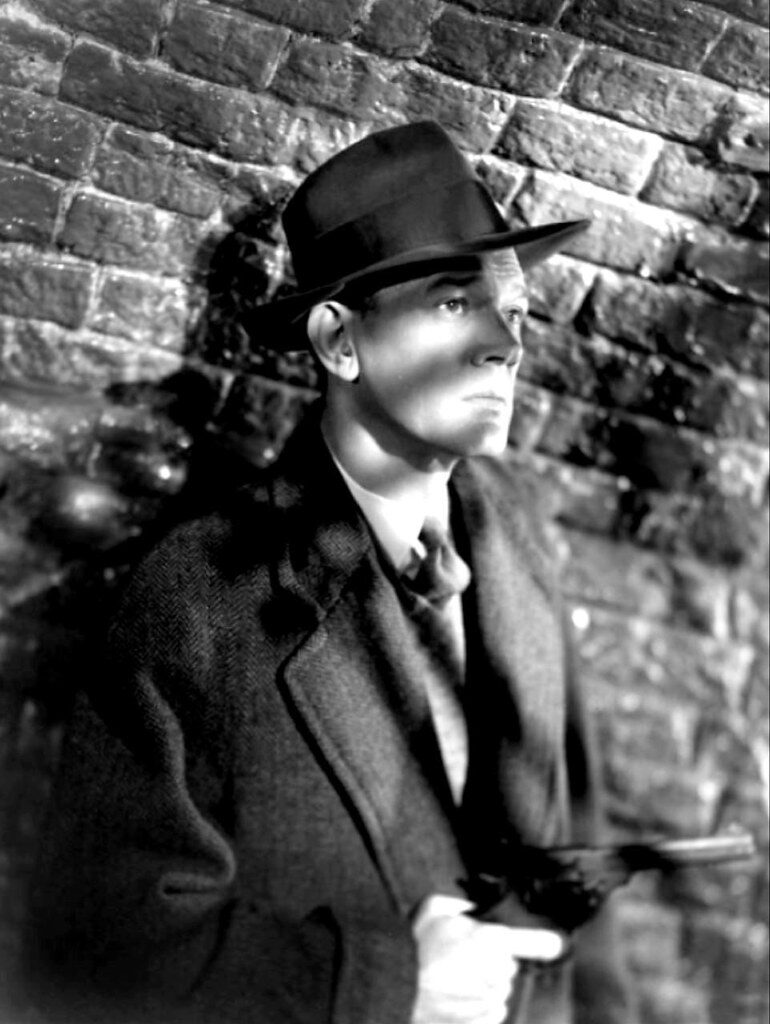
Robert Krasker – Joseph Cotten / Holly Martins in a frame from The Third Man, directed by Carol Reed, 1949
These are just some examples, starting from the Middle Ages, of how writing has assumed a planetary importance above all economic / military power.
Or perhaps, above these important papers, we could place the sacred writings, and important literary works, are in fact religious and artistic in my questionable judgment the highest meanings, besides passing an imperishable ford between these two entities, an alchemical bond for which we can deduce a mystical aspect in art, and an artistic side in spirituality.
Dart
The pertinacious intent of some commercial activities is to be visible to potential customers, reach them with an arrow, if possible, by any means, hypnotize them and attract them by means of a yoke on what they want to sell, presenting themselves with a treacherous eye-catching whose image is professional ethics.
Instead, I assure you that if you have a real quality product or service (which meets the requirement of Being Human – please see my precedent paper), it is enough to bring it to the knowledge of people with a non-invasive marketing action, making use for example of the potential of the SEO downstream to have complied with putting online a site that relates to the product / service with quality content and that rise the concept of Humanum est a dogma, and are not a simple compendium or an excessive succession of promotional messages, a type of action that has always been careless in my opinion.
Always, for a paper magazine, a newspaper, a novel, in addition to the textual content, many components contribute to the pleasantness, the fluency, the clarity of the reading, a set of details that allow us to combine an aesthetic aspect and, if we want, playful/material to the important action of reading. We want to reach a certainty with what we want to make ours as soon as we see a pleasantness that aligns with our cultural drivers.
We are not the ones having to undergo a conceptual and physical metamorphosis towards the material/philosophical/abstract entities that face our unique and multiple self, but they are the ones who are invested with the burden of having to acquire an assimilability to Man.
If we think about it, a solipsistic concept on the perception and sensory appropriation of the external world pervades each of us, so that an object, a place, a concept, a sound is not only mine from a property point of view legitimized for example economically, but it is also mine in the way in which I have transformed it on a physical/perceptive level to be in the same wavelength as my humanity and it is mine in the way in which I could appropriate something that fits my culture and gives advance notice of my personality, and these truths are concrete for me since within my personal existence as every other reality is resolved within my thinking.

Björn Envall – SAAB 900 Turbo 16S Aero Coupé, a valuable collector’s car thought and designed around the driver. The slogan of advertising in car magazines was “SAAB, as precious as intelligence” – design of 1987
Some might think that the concept of Human underlies the peculiarity of being Smart, but personally I don’t think so entirely. Perhaps in part, yes, but not entirely. The concept of Human probes in depth even and above all the feelings of the individual, and at this particular moment, and cannot therefore be reduced to a mere epithet, “smart”, an Anglicism that ultimately does not mean anything.
Would we like a smart life ? What does it mean? What are we really? The shadow of a humanoid world is a ghost that returns, and that grips.
An activity, a job, in the use of an object, or in learning a concept, if they are also easy, practical, are certainly appreciated by the individual, but they are not necessarily finite and not necessarily elevate in a complete and exhaustive way, from a human point of view.
Personally, to “practical” I prefer “exhaustive”, complete and, if you like, holistic wanting to pour out an organic component to what inorganic we approach and make our own by serving it to our needs and our cultural personality. Here, for example, a smartphone mobile phone can become our extension but not because it is smart, but rather because it has created a functional/vital/holistic/exhaustive interrelation between a technological object made servant and the human figure to which it has been subjected because it is assimilated and because it is made on its own.
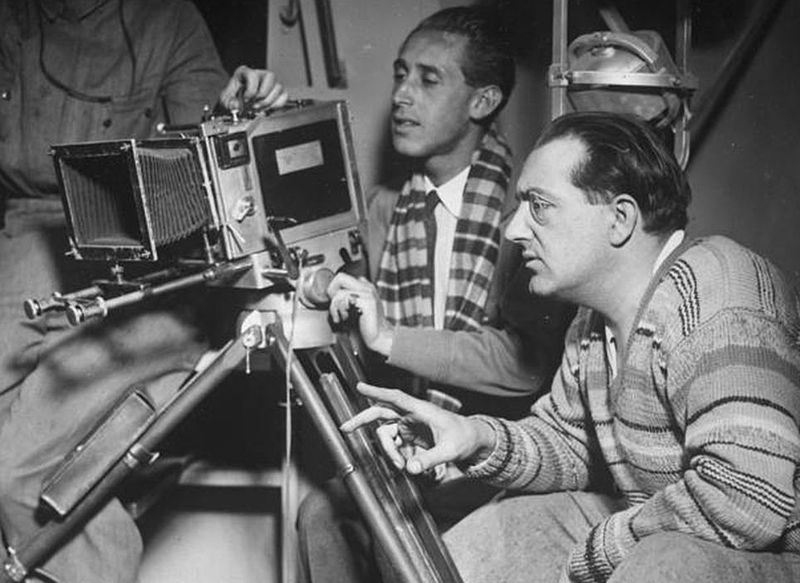
Fritz Lang and Curt Courant
SEO: Human = Mobile: Internet
I have deliberately used this type of form used in mathematical proportionality for the title of this delicate paragraph, I believe that it is a harbinger and acts as a note of what I am going to express in the subsequent lines.
SEO is to Human, just as Mobile is to the Internet, are now two truths apodictic that intersect perfectly in many variations. In fact we could also argue that for example the SEO is to Mobile as well as Human is to the Internet, or other 22 different combinations, since in mathematics for combinatorial calculation the combinations between four different numbers, without repetition, are 24, and personally I analyzed them being able to consider the philosophical validity for each one.
Now I analyze each of the 4 words, and as you can see, for each of them I will go to conceptualize the other 3.
1) SEO : acronym for Search Engine Optimization, it now permeates the life of each of us even if completely unaware of this fact. From childhood to senility today, the means of the most pragmatic knowledge, regardless of the field, is internet, and the hardware is mobile, the device that in some ways is always in our hands, an aspect that can be frightening from a philosophical point of view and with respect to the philology of a remote future. This technological device has become a sort of confidant to whom to entrust every part everywhere, every part of the side human of our essence, every part of our day, in every place, a platonic love towards something that can understand us from an exquisitely anthropological point of view? It is one of those questions that probably will not be answered forever, but from a solipsistic point of view each of us probably believes that the answer is yes and there cannot be, and cannot exist, other truths that interfere.
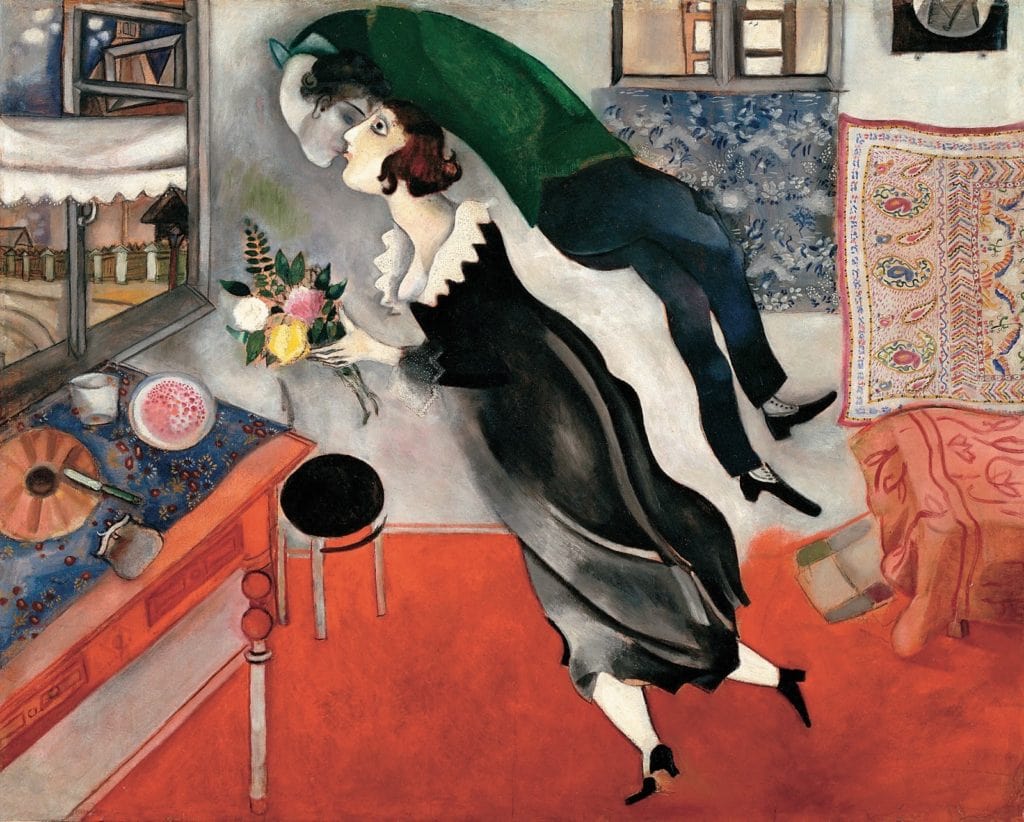
Marc Chagall – Birthday, 1915, oil on cardboard – New York City, Museum of Modern Art
An idea, a question, a curiosity, an anxiety: the display lights up, we entrust our thoughts, our prayer to the voice assistant, and the list of results of the search engine set appears, a search engine that we scrutinize and record via proprietary analytics software, trends in how users approach online search and through which devices. If from a human point of view the direction is that we all carry out mobile searches, the search engine has incorporated this truth and has shaped its algorithm giving priority to everything that appears on the display of a smartphone and is enjoyable to user, and is useful to the user, and is enriching for the user. The search engine has favored the human aspect. Consequently to this the SEO has channeled its efforts towards any meaning that this stance implies, taking note of the fact that the positioning of contents on a search engine must put in the foreground what the user wants to see, as he wants it see, from where and with what device, forgetting the concept “the SEO specialist places sites”. The SEO has welcomed the human aspect. Search engine and SEO have turned towards the human paradigm.
2) Human : a cathartic paradigm that aims to explore, epistemologically analyze human knowledge, gathering an anthropological vision, which takes into great consideration the teachings of philosophy and psychology, always aimed at transferring, pouring out, two components towards the outside organic and inorganic: the desires, the real needs, of the human I (ego) listened to, and the holistic aspect, that is the need to receive feedback with goods and services that respond widely, synergically, through interrelated and interdependent functions to psychological and physical mechanisms man.
In an age where there is not an individuality but a mass, a masses deprived of an identity, a will, a charisma, an economic power, a spirituality, it is possible to recover the heritage (not only spiritual) of a Population made of People real unique and exceptional, it is possible to restore vital lymph in the human soul, in morality, in spirit. It is possible to give life back, it is possible to restore hope to the hope of each of us by promulgating the Man-Man Interaction even in a world that travels on internet, a world that relates via mobile. The web is listening, there are people, there are men behind the web, they have understood the human paradigm and have decided to adapt the paths of internet communication to this saving concept, therefore including web tools of first necessity as search engines and annexed SEO in the presentation of the contents, in the presentation of the daily viaticum of those who consult the internet, that is each of us today.
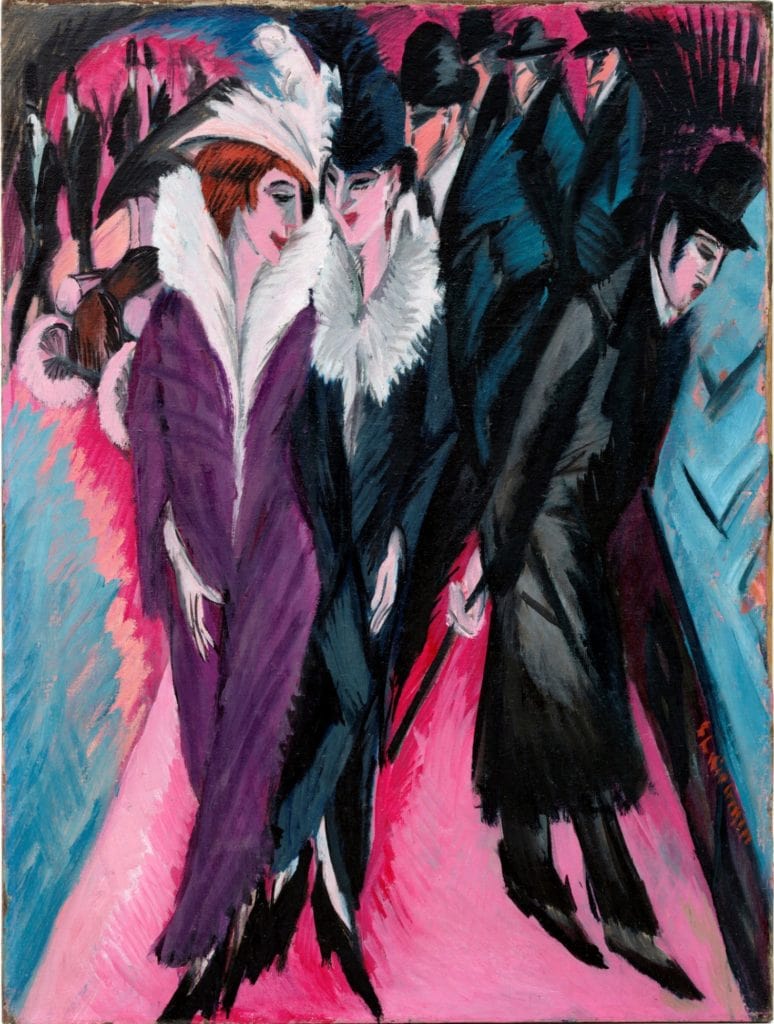
Ernst Ludwig Kirchner – Die Straße , 1913, oil on canvas – New York City, Museum of Modern Art
3) Mobile : it is not a toy nor a game, it is not merely an object, it is not a telephone nor a status symbol of egocentrism in a social stratification, it is not a person and it is not an animal, it is not our mother, it is not our father is not our partner, it is not a niche where we can hide, it is not an opium of the people. It doesn’t have to be all and not even one of these things.
Mobile today is Mobility, a purely functional aspect of the human paradigm that attaches to our organic body an inorganic element aimed at enhancing the possibility of having humanized responses thanks to an organic/conceptual human-technology osmosis; answers that are exhaustive, real and achievable.
It is the new “magic box” of contemporaneity, as was television in the early 1930s. TV channels today are internet, while the show schedule, and therefore of contents, is possible thanks to SEO.
4) Internet: it is difficult to define what the internet represents in modern society. It would be equivalent to having the courage, the presumption, to define life itself.
In any case, I am going to undertake this arduous undertaking: the internet is the medium that comes from the idea of a sensation, the feeling that something is missing. What was missing at the time the internet was born, and what would be missing if there were no more today, or not there yet? Can we perhaps be aware of something if this something does not exist? Can we perhaps be aware, for a sort of anamnesis, of what we were before our existence if we didn’t exist yet? There are perhaps ascetic forces that make our unconscious aware of what is good for us, of who we were, of who we are, of who we will be, by what means, with which why, with whom, for who, by whom and by means of what, at what time, in what where and from the point of view of who, who is behind it, there are forces that allow us to eventually discover what is really right from a point of view human?
The Internet is born from the feeling of the need to experience the fact of being human in a way that is finite, all-encompassing, filling that Aristotelian void thanks to an external force that has impressed the idea of the medium in the unconscious of a military body, I’m talking about people who are particularly sensitive and willing to listen to everything that humanly can fill certain logistical gaps, provide new opportunities for strengthening, knowledge, connection, sharing, speeding up information.
At the time of the birth of the internet, there were no search engines, nor the SEO, and the first internet ante litteram, called ARPANET, was still bereft of certain factors such as the direct connection host-to-host. It was 1969, practically fifty years have passed since then, and today we inherit this technological miracle that even stands on the palm of a hand, is mobile, and is touch, but we don’t think about it, they are now acquired, we forget, it is the standard. It is a perverse apathy for which humanity, acquired, achieved a goal, had the desired object, places it emotionally, classifying its use as something normal, ready to look forward, for a thirsty change, for innovation, of new and more beautiful, which I personally regard as a sexual mania, in other words a manic-compulsive and depressive dissatisfaction. It is an inertia, due to the fact that historically, whoever stops is lost, a concept closely tied to the economy, and for which modern society has simply carried out this perpetual motion but is no longer able to separate the themes and the relative membership times. In the same way that a worker cannot stop working and ride the wave by changing tasks and the workplace as the most natural of things, the relative person decontextualized by the role and the work environment cannot stop changing the cafeteria if it opens up a new one every month, can’t stop changing cars, can’t stop moving house, can’t stop changing partners as he can’t stop changing mobile phones, can’t stop changing music genre, can’t stop changing resort, can not stop changing sports, can not stop changing friends, can’t stop changing the way he does things, can not stop changing the way he is himself. It is a race against an unidentified entity, a lack of strength of emotional will, a flattening of an interior cultural identifying space that leads to an exploitation of the present and the destruction of any past, whether it is composed of positive or negative elements, indifferently.
We no longer know how to enjoy things, we had to run so fast pursued by the ghosts of anxiety, that we can no longer stop and we no longer see things, unfortunately this is a paradox in a time where the Human paradigm tries to make its way. There is yes the culture, but there is not the spark that triggers something perhaps crazy, love, and for which the person is aware of having something valuable in his hands, does not know how to appreciate it, escapes it as a fleeting moment not even enjoyed. This leaden sky threatens to obscure our souls if we do not stop for a moment to reflect, focusing with our eyes on the beauty that surrounds us, even simple things, which someone has realized with sincere love for us, this love still exists, pure.
So let’s try to savor the efforts of certain people in obtaining a more human life, more thought of each of us, more on a human scale, this can be a salvation.
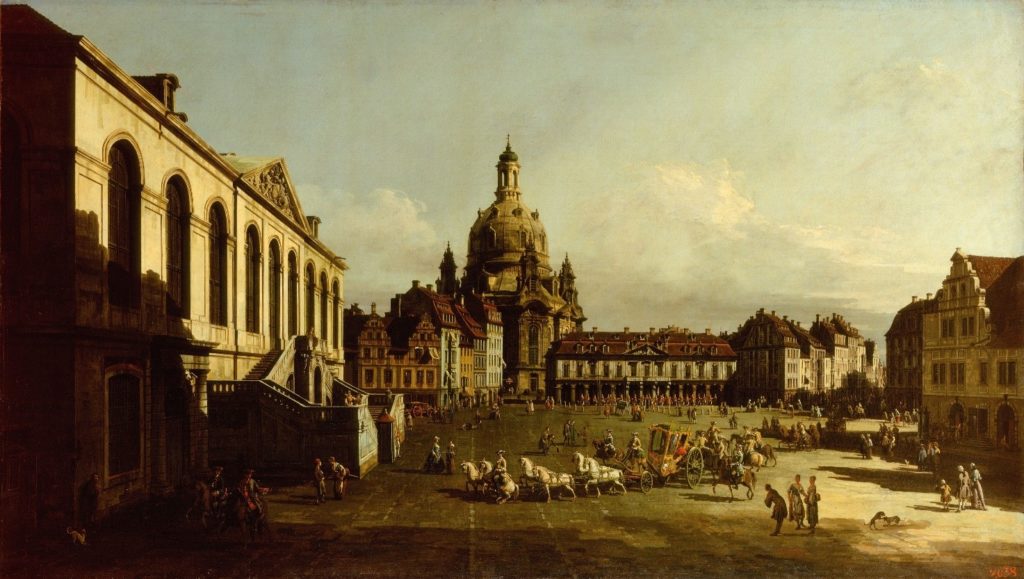
Canaletto – The Neuer Marktplatz in Dresden, 1747, oil on canvas – St. Petersburg, Hermitage Museum